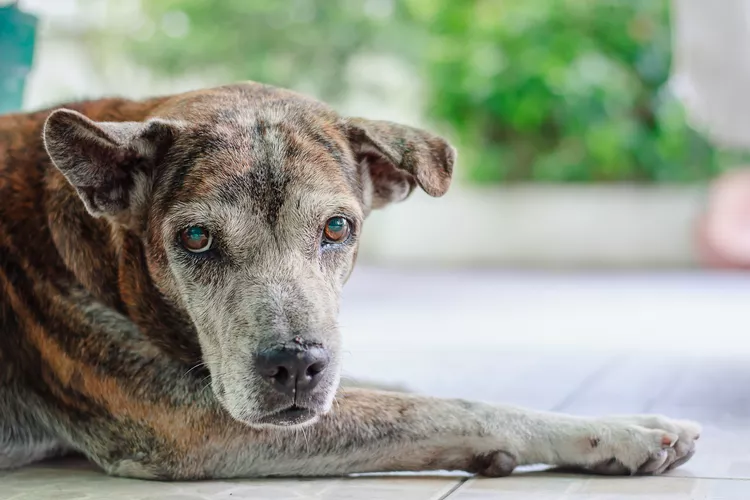
Older dogs of both sexes can struggle with incontinence, which is the inability to control the elimination of urine and/or stool. Common causes of incontinence in senior dogs include urinary tract infections, kidney disease, arthritis, and dementia.
Supplements and medications can help treat incontinence in dogs, though if there is a root health issue causing it you can certainly treat that. Learn the causes of incontinence in older dogs and strategies for dealing with it.
Incontinence is the inability to fully control the bladder and/or bowels. A dog that looks at you and squats to eliminate is probably not incontinent. When a dog is truly incontinent, urination and/or defecation can happen without the dog realizing it until it's too late. This can make the dog feel shame and even worry about being disciplined. True incontinence is not your dog's fault. Common findings in incontinent dogs include:
In the early stages of incontinence, it may just seem like your dog cannot hold it. It's a good idea to start letting your older dog out to go potty more often than usual.
If your older dog begins to have accidents in the house, try first to determine the cause. Is your dog knowingly peeing or pooping in the house? This could be related to a medical condition or a behavior problem.
The first thing to rule out is a health issue. Contact your vet for a checkup. Senior dogs should see the vet more often than younger dogs; twice per year exams are often recommended. Your vet will probably want to test your dog's urine and blood.
The most common health-related cause of urinary accidents is a urinary tract infection. If this is the cause, your vet will put your dog on antibiotics. Urinary issues can also result from bladder stones or tumors. These might require surgery.
Urinary tract infections and other urinary issues may be related to kidney disease, especially in older dogs. Kidney disease causes the body to drink more water and urinate more. All of this can be difficult for a senior dog to handle, causing inappropriate urination.
GI problems can cause diarrhea and other stool issues that can look like incontinence. If your dog's stools seem abnormal, your vet might want to do X-rays or an ultrasound to look at the abdomen.
Problems with the spine can lead to nerve issues that cause incontinence. Dogs with intervertebral disc disease or traumatic spinal injuries can develop incontinence. Medical or surgical treatment may not fix the problem if the nerve damage is bad enough.
Arthritis is a common problem in older dogs that affects mobility. Your dog may be stiff and achy, making it difficult for him to get in the right position to urinate and/or defecate. He might be holding it because of this. Then, when he can't hold it any longer, he has an accident.
Problems in the brain can affect a dog's ability to control his bladder and/or bowels. This may be a brain tumor or infection that has damaged a part of the brain. Or, more commonly, it may be dementia. Also called canine cognitive dysfunction or senility, dementia causes a dog to lose his memory, have trouble concentrating or focusing, and experience personality changes. Dogs with dementia often become anxious and act disoriented. One of the earlier signs of dementia is "forgetting" training, such as house training.
There is no cure for dementia, but there are ways you can help your dog cope. There are also some medications and supplements that can ease symptoms and slow the progression of the disease.
Some dogs will benefit from medications and supplements for urinary incontinence. However, incontinence due to dementia cannot be treated the same way. If your dog is incontinent and there is no treatment to stop it, you can make some adjustments to improve your dog's quality of life and preserve your sanity.
It can be hard to deal with these issues as your dog ages, but your dog deserves to live out his golden years as comfortably as possible.

Cute Pictures & Facts About Calico Cats & Kittens
Learn fascinating facts about calico cats, including photos, the genetics behind this color combination, and common folklore and traditions.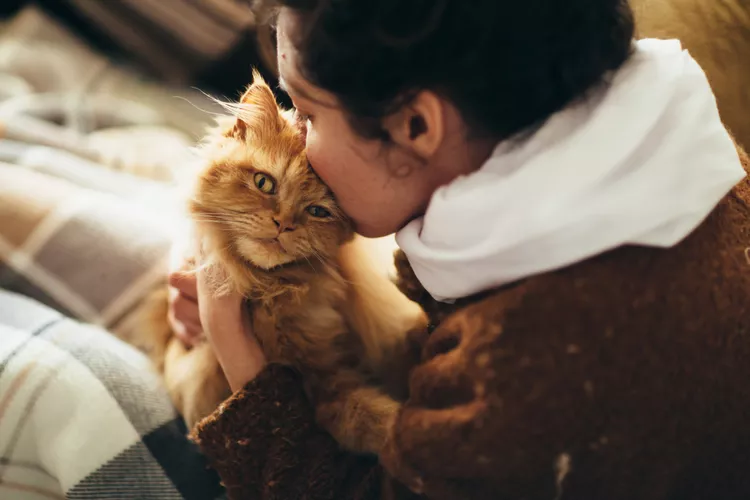
How to Prevent Cat Separation Anxiety During Vacations
Discover why cats develop litter box problems and cat behavior problems when you go on vacation and what you can do about it to help them.
Cat Behavior Changes That Might Mean Something's Wrong
Cats' behavioral changes may indicate problems—or they may mean nothing at all. Explore causes of odd behavior and what to do about them.
Lhasa Apso: Dog Breed Characteristics & Care
The Lhasa apso is an ancient breed from Tibet that was bred to be a watchdog. Learn about its history, health, exercise needs, and more.
Reasons Why Dogs Run Away and How to Stop It
Dogs can escape, especially if they’re bored and not properly contained. Here are some techniques for stopping your dog from running away.
Can Dogs Get Depression? How to Help Your Sad Dog
Can dogs get depression? Learn about the signs of depression in dogs and find out how to help your sad dog.
How to Stop Aggression in Dogs
Dog aggression can be a serious behavior issue for pet owners. Learn how to stop aggression in dogs before someone gets hurt.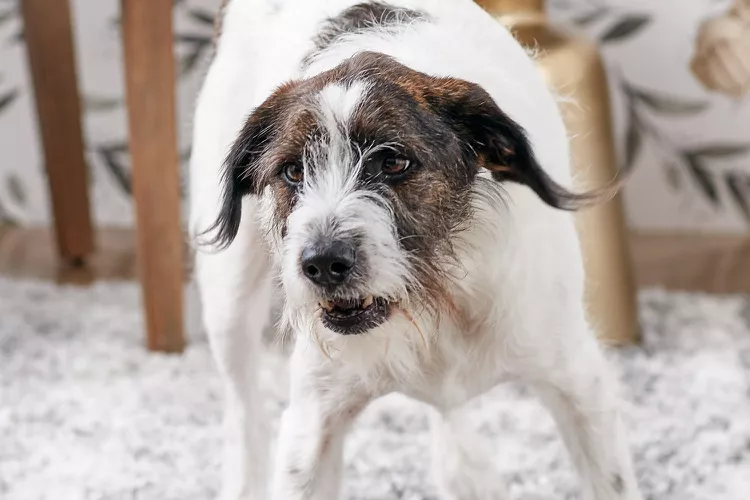
How to Stop Your Dog From Growling
A growling dog can soon become even more aggressive. Reduce the noise and potential for a dangerous situation with some of these techniques.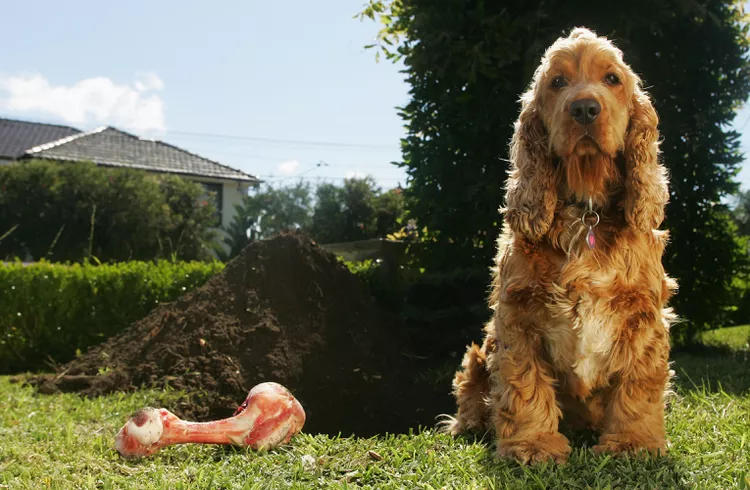
Why Do Dogs Dig Holes? How to Stop Your Dog from Relandscaping Your Yard
Dogs have been digging holes for centuries and for many reasons. Whether they’re bored or want to cool off in the dirt, here are the top reasons why dogs dig holes.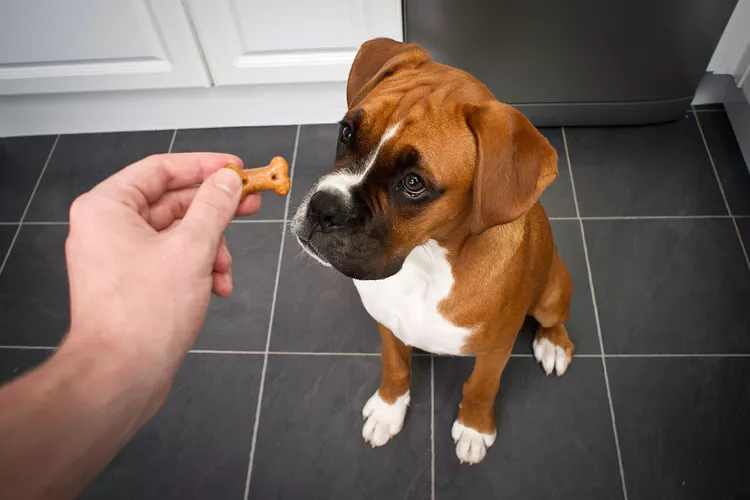
Dog Treat Varieties
Learn about the different types of dog treats on the market and decide which are best for your dog.
Can Dogs Eat Asparagus?
Dogs can eat asparagus, provided the vegetable is cooked plain and cut up for them. Seasonings, salt, and butter make it unhealthy for dogs.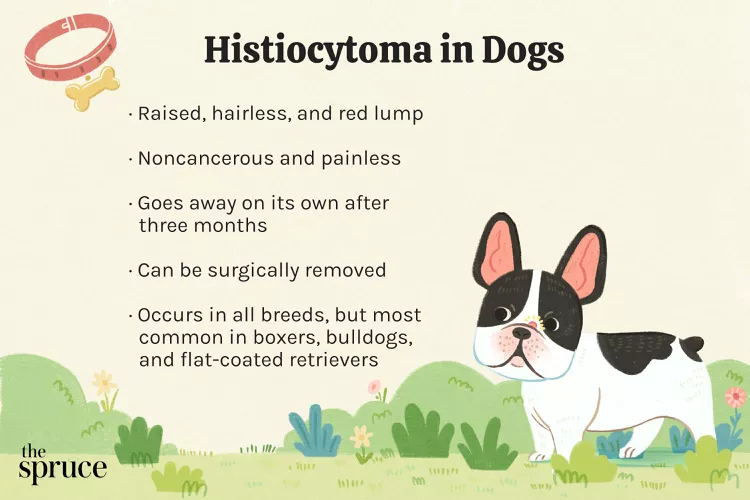
Histiocytomas in Dogs
A histiocytoma is a type of benign (non-cancerous) skin lump that usually affects young dogs. Learn the causes, treatment, and prevention.
Why Is My Dog’s Eye Swollen?
If your dog's eye is swollen, she may need veterinary attention. The inflammation could be caused by allergies, an injury, or even a tumor.
Common Bugs and Parasites Found on and Inside Dogs
Learn about common types of parasites in dogs. Find out how to treat and prevent parasites to keep your dog, your family, and yourself safe.
Exploring the Different Types of Pet-Friendly Beaches
Are you looking for pet-friendly beaches? Learn about the different types of pet-friendly beaches, their locations, and tips for visiting them with your pet.
10 Obscure, Little-known Canine Facts in Honor of National Dog Day
With National Dog Day upon us, it's time to celebrate everything about our favorite pets—even the weirder stuff. Here are 10 obscure facts about dogs you probably didn't know.
Kitten Development From 3 to 6 Months Old
Kittens grow and change a lot during their first year. Find out what happens between the ages of three months and six months old.
95 Siamese Cat Names
Our list of Siamese cat names has diverse and fun options to help you choose the ideal moniker for your elegant and lovable feline companion.
What to Buy for Your New Cat: A List of Essentials
Before you bring your new cat or kitten home, there are a number of things to collect or buy so your cat will feel welcomed like a family member.
The 6 Best Cat Nail Clippers of 2024 for a Safe Trim
Clipping your cat's nails can save your furniture and keep your kitty comfortable. We asked veterinarians for their cat nail clipper recommendations.